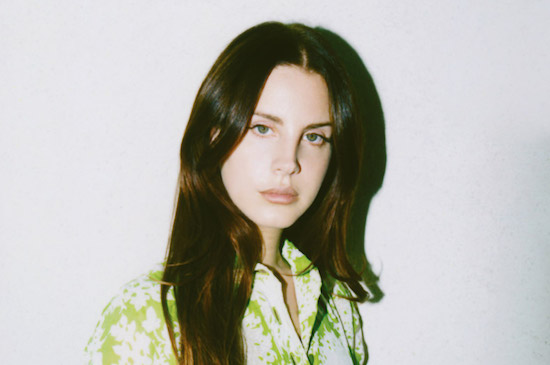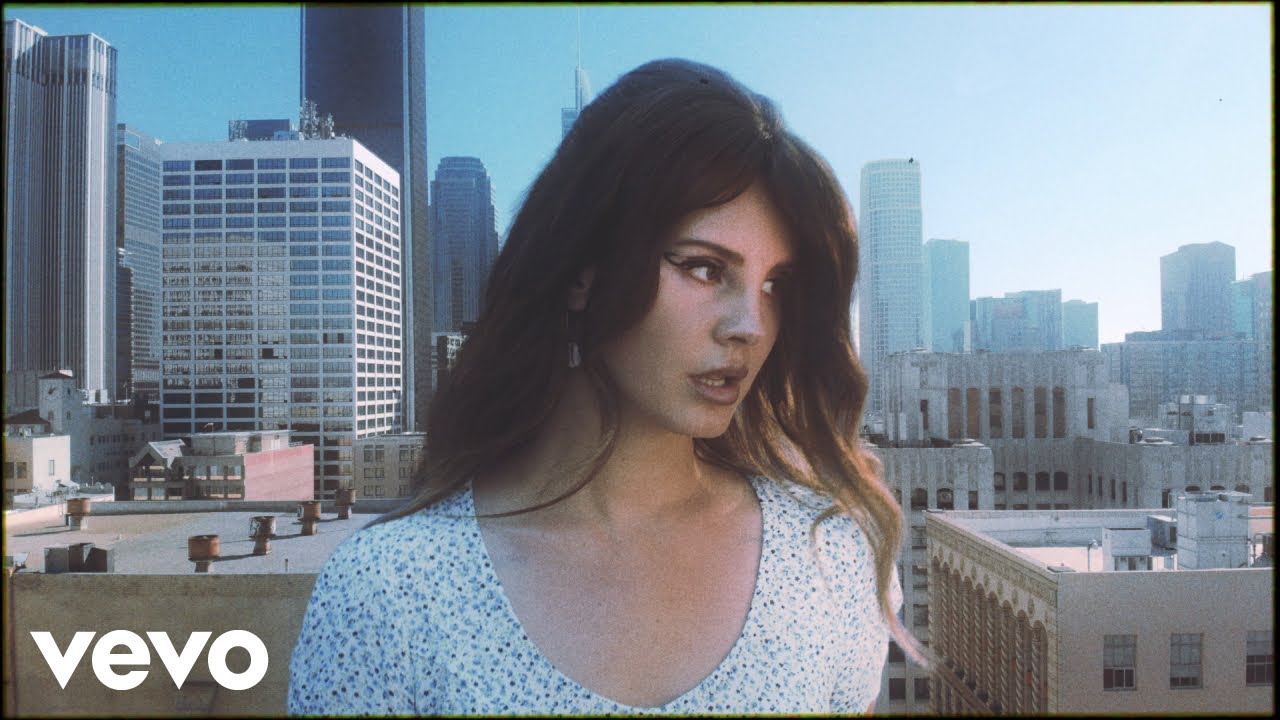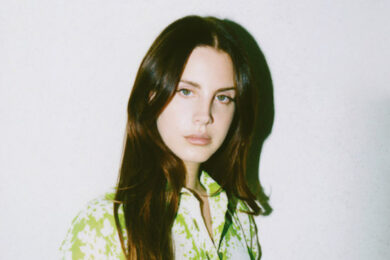Photo: Neil Krug
What do you do when your new album is full of collaborations but nobody’s in town to play them at your gig? The answer, regrettably, is to leave out songs featuring The Weeknd, A$AP Rocky, Stevie Nicks and Sean Lennon. Failing to properly perform lead single ‘Love’, released from Lust For Life nearly six months ago, is a little less excusable. Lana Del Rey asks the crowd to be gentle as “we’re still getting used to it”. She leans over the piano as her pianist strokes the opening four chords, and then he goes around again where the singing should commence, and then again, and again, until Lana abruptly aborts.
“Fuck it,” she says. “We can’t do it. I’m gonna do it a cappella for you.”
A pitch perfect rendition is then pulled out of the bag, with a devoted crowd singing every word as makeshift accompaniment, but you do wonder what her band have been up to in 2017 given that this impromptu fans’ show features only two new songs from the record – a record which, lest they forget, hit stores last Friday.
We’ve all been to shows where self-important artists impose ‘the new stuff’ on a crowd that clearly just wants to hear the hits, but tonight would have been perfect for performing the new record in its entirety; few would have objected and few artists have earned that privilege more than Lana Del Rey. For starters, Lust For Life might well be her best album to date. The tracks dropped before Friday’s release, ‘Love’, ‘Lust For Life’ and the two A$AP tracks, are her strongest in years and push the Lana Del Rey sound that little bit further. There’s always been an R&B influence deep under the surface, which comes to the fore this evening on ‘Serial Killer’ and ‘Off To The Races’, but her love of hip hop has never been properly explored until now, and it’s a crossover she pulls off with aplomb.
‘Cherry’ has a slick rhythm track and ambient textures reminiscent of Portishead, while ‘White Mustang’ – apparently her own favourite from the record – is pretty enough though a little Lana-by-numbers, not helped by the background footage of elegant horses cantering through water in slow motion. The record is full of familiar leitmotifs – being alone on a beach, summer being a bummer (a big problem if you’ve relocated to Los Angeles) – though the show is uncharacteristically low concept. The lavender drapes and dreamy sequences projected behind are typically Lynchian, but the grandiosity, like the production on the record, is pared down. She’s dressed in simple black top, faded denim and Jesus sandals, a far more relaxed affair than the 2013 Paradise tour where she appeared on stage in full Miss Havisham garb. Perhaps the relaxed nature of the event is indicative of someone who has become more relaxed in themselves – that the Lust For Life isn’t ironic.
There’s an almost concerted effort on the new record to assert a kind of contentedness, though as usual that happiness feels like a thin veneer masking a whole world of sorrow. There’s a sense that we’ve moved a little closer to the real person with these new songs, but the more she lets us in, the less we seem to know about her. Lust For Life sounds like the most personal record she’s made, and yet Del Rey says her previous records were for her while this one is specifically for the fans. As ever, there’s a big bag of contradictions.
Whatever the misgivings about the lack of new material tonight, the fans don’t seem to mind. They’re ear-shreddingly manic between songs, producing a real visceral noise that stars tend not to elicit these days. Can there be many other artists who divide opinion and inspire devotion like Lana Del Rey? For some there’ll always be questions about authenticity – high art has so often been subjected to the same scrutiny from the masses, and like modern art, Del Rey is saleable, cryptic, aesthetically driven and very much open to interpretation. She’s easily dismissed by some, and just as easily regarded as something rather profound by others, and the most interesting thing about her is the artifice – which will always leave us guessing. Few popular artists, except for, perhaps, FKA Twigs and latterday Scott Walker, present listeners with such opportunities to project their own exegeses onto the source. What makes Del Rey unusual is that she’s a pop star and not in any way avant garde.
Pitchfork recently ran a piece asking whether or not Lana Del Rey is the American Morrissey, which seemed to suggest both are famously miserable and both play around with personas. The argument is flimsy, obviously, especially when the writer cites controversy as a point of similitude (tacit approval of Marine Le Pen does not equate to saying “I wish I was dead already”). Whether or not the comparison holds up, Lana Del Rey is an artist people feel the need to try to box in and compartmentalise, though for the last five years she’s been doing a very fine job of circumnavigating such traps, existing on her own plane as her own genre.
If one is looking for a sharper comparison, then allow me to suggest kinship with the Carpenters. Both sets of artists were displaced East Coast Americans who wound up in LA for the sake of ambition, and both moved there from Connecticut; siblings Richard and Karen grew up in New Haven, 60 miles away from where Lizzie Grant attended boarding school, unhappily by all accounts. Both perform(ed) overwrought, baroque ballads about heartbreak and depression, projecting images that attempt(ed) to disguise something altogether more complex with a patina of repletion. Like Karen before her, Lana sings in a beautiful and haunting voice with a low, desperately lonely resounding timbre (while Carpenter’s voice is inimitable, and one of the most distinctive in pop’s canon, it’s fair to say Del Rey has the greater range). Lust For Life presents a thin veneer of fulfilment, which like the Carpenters is more of a Prozac-induced sheen than anything resembling true joie de vivre. The cover art too is all gossamer smiles, while underneath lies something deep and unsettling, with a hint of disfunction and perhaps even dysmorphia. What’s beautiful, and tragic, is that you don’t know what lies in the underneath, and ultimately there might be nothing there at all. To truly love an artist like Lana Del Rey takes a leap of faith, and it’s the same leap of faith one has to take with great modern or postmodern art, and indeed the same with worshipping deities too. Perhaps this is why she inspires such devotion.
And take the A$AP collaboration ‘Groupie Love’, which is really just an updated version of the Carpenters’ ‘Superstar’. Where Karen sings, “Your guitar, it sounds so sweet and clear, but you’re not really here,” Lana sings, “You’re in the bar, playing guitar… It’s so hard sometimes with the star / when you have to share him with everybody”. Both songs are about starfucking, and neither is sneary or judgemental. Both songs dissect the pain a groupie endures when put through the ringer by the exalted object of their affections – whether true or delusional – and because of that, both are absolutely wonderful. Lana doesn’t play ‘Groupie Love’ tonight, but you suspect the fans here will always forgive her, whatever the transgression.




